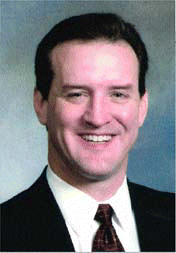A 48-year-old woman presents to you for bilateral hearing loss, aural fullness, vertigo, nausea/vomiting, and tinnitus of two months’ duration. When you enter the exam room, she proceeds to tell you about how her yeast had gotten out of balance and she was in a healing crisis when she had an allergic reaction to Pine-Sol. Audiometry shows an asymmetric mild high-frequency sensorineural hearing loss. She has had two MRI scans with Gd contrast that were both read out as normal. She has already been evaluated by four internists, two otolaryngologists, and two neurologists. One of the otolaryngologists told the patient that temporomandibular joint (TMJ) syndrome was the cause of her problem, and the others gave her anti-anxiety medications.
Explore This Issue
January 2008 The only thing worse than having a miserable medical problem is to have those who are supposed to be helping you not believe you.
The only thing worse than having a miserable medical problem is to have those who are supposed to be helping you not believe you.Keep in mind that this patient presents to you in the middle of a busy clinic day and you are already 30 minutes behind schedule. What do you do with this patient? No, I don’t mean what is the textbook answer? What would you really do? Would you show compassion to this obviously distressed woman? Or would you just try to figure out what is the fastest way to get her out of your office and into someone else’s? As it turns out, this patient is fairly sophisticated and realizes that the diagnosis of TMJ is wholly inappropriate for her symptomatology and suspects that the physicians who prescribed anti-anxiety medications think she is crazy and do not believe she is truly sick.
To have Ménière’s disease is truly to be cursed. You experience unexpected bouts of hearing loss, tinnitus, and vertigo. Although the hearing loss can fluctuate, there is always the fear of losing all your hearing, with doctors telling you that there is a 30% to 50% chance that it will happen to both your ears. Tinnitus can be bad enough to drive some patients to the point of suicide or self-mutilation-just ask van Gogh. The vertigo alone can leave even the most independent individuals incapacitated. Probably the worst part of the disease is that your family members, friends, and especially your co-workers don’t believe you. You suspect that they think you are exaggerating or making up this condition. After all, you don’t have a cast on your arm, you’re not in traction, and you can’t show them your vertigo. There is probably only one thing that could make this worse: if on top of all of that, your physician also thinks you are crazy or malingering. Many Ménière’s patients eventually come to suspect they are indeed crazy because those around them, including their physicians, seem to think so. Consequently they are referred to psychiatrists, who often treat them for depression-a not-surprising result of the above-mentioned scenario.
Leave a Reply